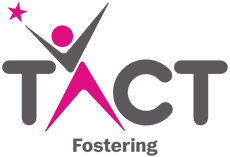TACT foster carer Amanda shares her experience of caring for children with Foetal Alcohol Spectrum Disorders
My husband I started fostering through TACT nine years ago for a simple reason – we both really wanted to help children and young people.
I had worked with children and young people for many years, first for a youth charity, then for a career advice service for young people, and eventually in prisons where I supported young offenders. With each new role I was working more intensely with smaller groups, so I thought that by supporting young people 24/7 I could make even bigger difference to their lives. Unfortunately, while working with young people, I’ve also come across some awful foster carers which was really sad. I thought these children can’t be called ‘looked after’ when they’re not really being looked after. That was one of the deciding factors when I told myself I had to foster.
Since becoming foster carers, we had some short-term placements, some long-term ones, and for the past seven years we have been caring for two adorable little sisters. A few years after we welcomed them into our family, their big 12-year-old brother joined us and now all three of them are staying with us permanently. We were passionate about giving a home to sibling groups. During my career, I have come across many teenage girls who were labelled as problem children, but they were actually angry and anxious about their family being split up and about not being able to live with their little siblings, whom they mothered when their parents couldn’t cope. Therefore, I know how important it is to keep brothers and sisters together.
We loved having these three children with us but quite soon we realised they had significant learning difficulties which had not been acknowledged even though they’d already been in care for almost four years by then. They couldn’t read very well, they were behind their peers in school, they kept forgetting to do simple things and struggled to stick to routines. We didn’t know what was wrong. However, one day I attended one of TACT’s training sessions, and listened to a member of staff talking about Foetal Alcohol Spectrum Disorders (FASDs) which is an umbrella term describing the range of effects that can occur in children whose mother drank alcohol during pregnancy. I was blown away by what I heard, everything he said replicated my children’s behaviour and physical signs.
As much as we were sad to realise this, it enabled us to seek appropriate training to be able to help and support our children. We did as much training as we could and took comfort in finding out that a teenage brain can actually develop and reorganise itself. We knew we had a very small window of opportunity to help our children do that.
We fought long and hard to get a medical consultant that had really good knowledge about FASDs. Our GP had no idea what it is so I printed a lot of information and handed it back to him. It’s quite something when you are educating your own GP about a medical condition. TACT has provided us with some fantastic documents so we printed those and carried them to every medical appointment we attended. When we finally found a great knowledgeable doctor, she examined children medically and holistically using a very soft and considerate approach and diagnosed them with Foetal Alcohol Syndrome (FAS). She advised us that if we carry on working with our children they will be able to learn a lot and we were over the moon to hear that.
We have established routines taking into account what works for each and every one of our children. They thrive when routines are in place but these absolutely need to be child lead. That’s when we have seen excellent progress. They are doing so well, they are coping in school and sticking to our strategies for budgeting, coming home on time, self-care and others.
Our three gorgeous children are so hardworking, the effort that they put into their everyday life is amazing but every now and then they just completely forget something that comes so easy to others. When I look at them I know that they are not doing that to annoy us, they are not lying or trying to be difficult. They have just completely forgotten how to do things. Often, it’s really hard to witness. For example, just before her GCSEs, one of our children completely forgot what the divide sign looks like or what it does. I felt dreadful as I made sure to go through it with her over and over again. We have had to be incredibly patient and understanding.
I am thankful that my children have been properly assessed and receive wonderful support that they need, but sometimes I’m sad they have to live with the FASDs label. Our eldest dreamt about becoming a cook in the army, but unfortunately, he wasn’t allowed to do that due to his diagnosis. He was told he may not be able to cope, but I am sure there are many other people who may not cope either, and they don’t have FASDs.
It is our duty as foster carers to advocate on behalf of our children to the very best of our abilities, and make sure they receive the support they need. As a large percentage of children are coming into care due to a parent’s alcohol misuse, many foster carers have come across FASDs and it is up to us to educate everybody about it and to spread awareness about the harm that one can do to an unborn child. When people learn about FASDs, there will be no excuse to have babies born with all these difficulties.


